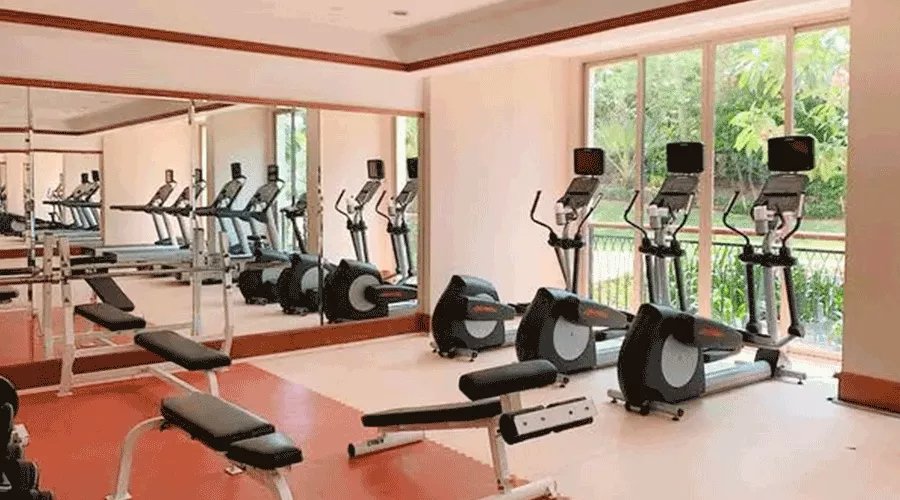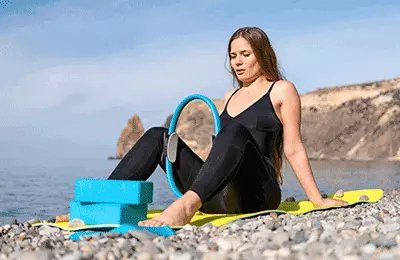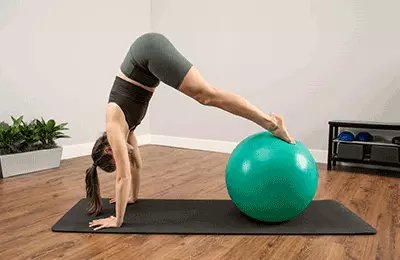
What Does Yoga Mean?
Yoga, an ancient practice originating in India, is a holistic system that aims to unite the body, mind, and spirit. The word “yoga” comes from the Sanskrit term “yuj,” which means to join or yoke. This union refers to the connection between the individual self (jivatma) and the universal self (paramatma). It encompasses physical postures (asanas), breathing techniques (pranayama), meditation, and ethical principles. Today, yoga is widely recognized for its numerous health benefits, including stress reduction, increased flexibility, improved strength, and enhanced mental clarity.
Best Yoga for Beginners
For those new to yoga, starting with a gentle style that emphasizes foundational poses and alignment is often recommended. Hatha Yoga is one of the best options for beginners. It focuses on basic postures at a comfortable pace, allowing practitioners to learn the correct form and build a strong foundation. Other beginner-friendly styles include:
Vinyasa Yoga
While it can be more dynamic, many Vinyasa classes offer modifications for beginners.
Iyengar Yoga
Known for its use of props and focus on precision and alignment, making it accessible to all levels.
Restorative Yoga
Utilizes props to support the body in passive poses, ideal for relaxation and stress relief.
Anti-Aging Benefits of Yoga
Yoga offers several anti-aging benefits by promoting overall health and well-being. Specific practices like Kundalini Yoga and Sivananda Yoga are particularly noted for their rejuvenating effects. These styles emphasize pranayama (breathing exercises) and meditation, which help in reducing oxidative stress, improving circulation, and enhancing cellular function. Regular practice can lead to:
- Improved skin elasticity and complexion
- Enhanced flexibility and joint health
- Better balance and coordination
- Reduced stress and anxiety, contributing to a more youthful appearance
Yoga and Arthritis
Yoga is beneficial for people with arthritis as it helps in managing pain, improving joint mobility, and increasing muscle strength. Gentle forms of yoga, such as Hatha and Iyengar, are especially helpful. These styles allow for modifications and the use of props, which can make the practice safer and more accessible. Additionally, the meditative aspect of yoga can aid in stress reduction, a key factor in managing arthritis symptoms. Always consult with a healthcare provider before starting any new exercise regimen, especially if you have specific health concerns.
Losing Belly Fat with Yoga
While no single form of exercise can target belly fat specifically, incorporating yoga into your routine can contribute to overall weight loss and toning. Styles like Power Yoga and Ashtanga Yoga are more physically demanding, helping to burn calories and build lean muscle. Core-strengthening poses, such as boat pose (Navasana), plank, and warrior variations, can also enhance abdominal strength and improve posture, leading to a flatter stomach. Consistency, combined with a healthy diet, is key to seeing results.
Pilates vs. Yoga for Seniors
Both Pilates and yoga offer significant benefits for seniors, but they cater to different needs. Pilates focuses on core strength, stability, and posture, using precise movements and controlled breathing. It’s excellent for improving balance, preventing falls, and alleviating back pain. On the other hand, Yoga provides a broader range of benefits, including flexibility, strength, relaxation, and mental well-being. For seniors, Chair Yoga and Gentle Hatha Yoga are particularly suitable, as they can be adapted to accommodate various physical limitations. Ultimately, the choice between Pilates and yoga depends on personal preferences and specific health goals. Some seniors may find a combination of both to be most beneficial.
Best Time for Yoga
The optimal time for yoga can vary depending on personal preference and lifestyle. Many practitioners prefer early morning sessions, as this can set a positive tone for the day and increase energy levels. Morning yoga also tends to be quieter and more introspective, facilitating a deeper connection with the practice. However, evening yoga can be equally beneficial, especially for those looking to unwind and relieve stress after a long day. The key is to choose a time when you can commit to a regular practice without feeling rushed or distracted.
Frequency of Yoga Practice
For most individuals, practicing yoga 2-3 times per week is sufficient to see noticeable improvements in flexibility, strength, and mental well-being. However, the frequency can be adjusted based on personal goals and schedule. Those who wish to deepen their practice or address specific health issues may benefit from more frequent sessions, even daily. It’s important to listen to your body and avoid overexertion, as rest and recovery are crucial components of any fitness routine. Consistency is more important than intensity, so finding a sustainable rhythm that fits into your life is key.
Combining Yoga and Pilates
Mixing yoga and Pilates can be a highly effective way to achieve a balanced workout. Both practices complement each other, with yoga focusing on flexibility, mindfulness, and spiritual growth, while Pilates emphasizes core strength, alignment, and efficient movement. Incorporating elements from both disciplines can lead to a well-rounded fitness routine that enhances physical and mental health. For example, you might start with a Pilates session to strengthen and stabilize, followed by a yoga sequence to stretch and relax. Alternatively, alternating days between yoga and Pilates can provide variety and prevent boredom, ensuring a more engaging and sustainable practice.
In Conclusion
In conclusion, yoga is a versatile and transformative practice that can be tailored to meet the needs of individuals at all stages of life. Whether you’re a beginner seeking to build a foundation, someone interested in the anti-aging benefits, or a senior looking to maintain health and vitality, there is a style of yoga that can support your journey. By understanding the different aspects of yoga and how to integrate them into your lifestyle, you can experience the profound benefits that this ancient practice has to offer.










